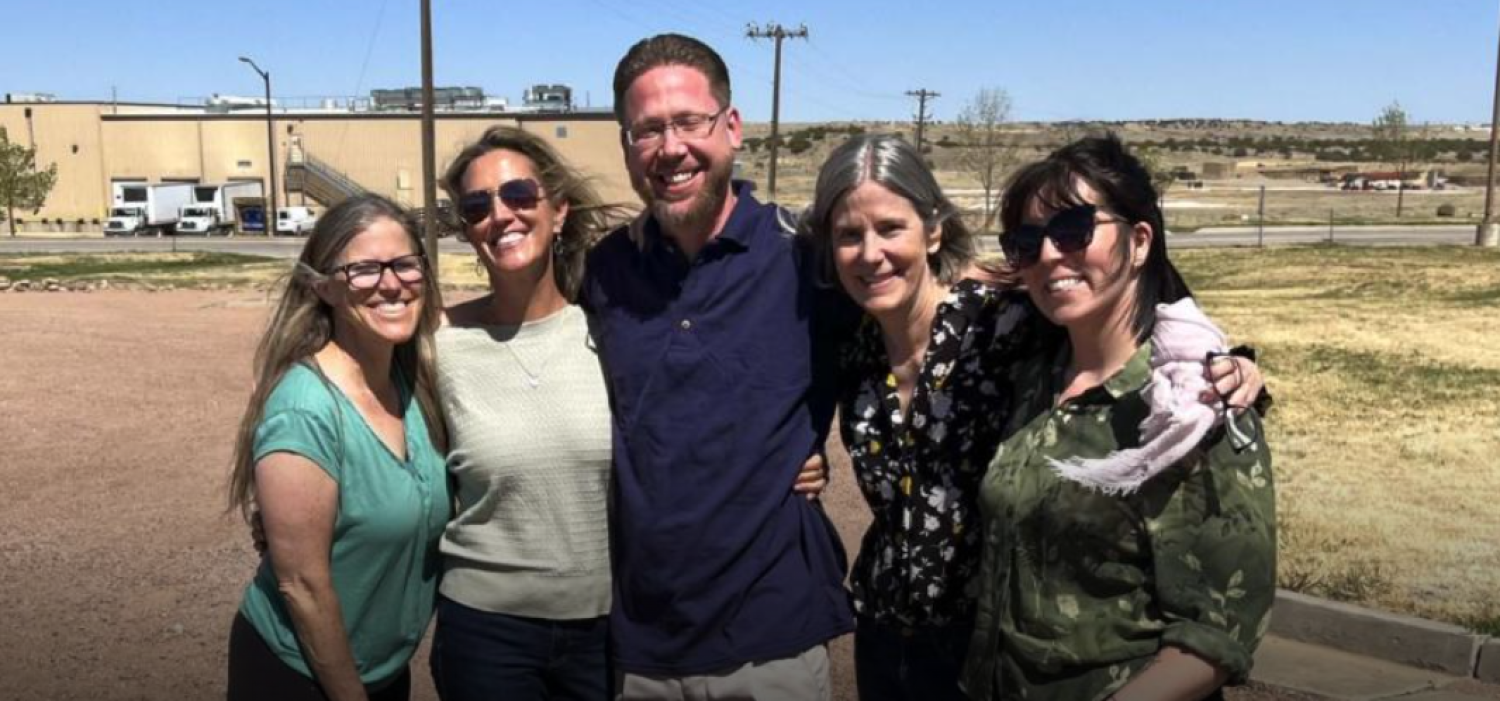KWIP Client Jason Hogan Released from Prison

KWIP client Jason Hogan was released from prison on May 9th, 2023!
KWIP took on Jason's case in 2019. Convicted of a robbery/kidnapping at the Cherry Creek Shopping Center in Denver, he was serving a 77-year sentence. To us, Jason's case immediately looked like a wrongful conviction. The conviction rested almost entirely on the victim's identification of Jason as her assailant. Yet, the victim initially told police that she had not gotten a good look at the robber's face. And, she described him as having a sun tattoo on his left hand, and Jason had no tattoos on his hands or lower arms.
KWIP embarked on a three-year long journey to uncover additional evidence of Jason's innocence. KWIP soon learned that an identical robbery/kidnapping took place at the Cherry Creek Shopping Center five days after the crime for which Jason was convicted. Because the two crimes -- and the suspect descriptions -- were strikingly similar, the police concluded that the same man committed both crimes. But, police quickly developed compelling evidence that Jason did not commit the second robbery:
- The victim in the second case failed to pick Jason's picture from a photo line-up and said that the man who robbed her was not in the line-up.
- A fingerprint lifted from where the robber touched the second victim's car did not match Jason.
- The second victim described another distinctive feature of her attacker -- a heavily pockmarked complexion -- that did not fit Jason.
Though due process required the police and prosecution to share this helpful evidence with Jason's lawyers, they failed to do so. Consequently, the jury that convicted Jason never learned about the second identical crime and all of the evidence showing that Jason was not the robber.
In 2022, KWIP shared this new evidence with the Conviction Review Unit (CRU) at the Denver District Attorney's Office. We were prepared to file a motion for post-conviction relief based on the new evidence, but such motions can take years to litigate in the courts.
So, when the CRU offered to let Jason enter an Alford plea to a lesser charge and be resentenced to time-served, he agreed. Under an Alford plea, a person maintains their innocence, but admits that there is evidence that, if believed by a jury, could lead to their conviction. In cases of wrongful conviction, such compromise outcomes are not uncommon. By accepting the CRU's offer, Jason was able to avoid a long court battle, get home to his family immediately, and get on with his life.
Jason earned two Associate degrees while in prison and was a star participant in an entrepreneurial program run by a non-profit called Breakthrough. Indeed, Breakthrough was so impressed with Jason that they offered him a full-time job and he started working with them shortly after his release.

